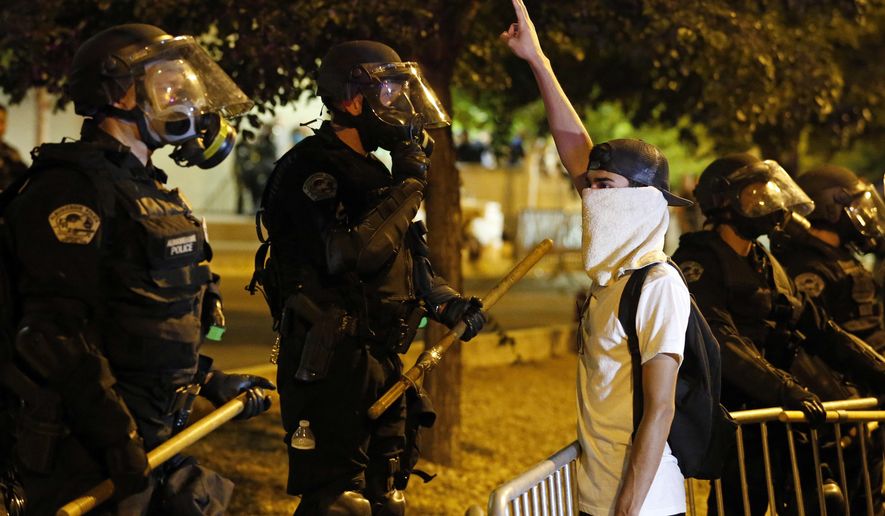Despite an intense national focus on high-profile police shootings involving white officers and black men, a new study shows that white officers are not statistically more likely to shoot and kill a black suspect.
Among a sample of 2,699 fatal police killings between 2013 and 2015, the study found that the odds of a black suspect being killed by a black police officer were consistently greater than the odds of a black suspect getting killed by a white officer.
“When either the violent crime rate or the demographics of a city are accounted for, we find that white police officers are not significantly more likely to kill a black suspect,” wrote co-authors John R. Lott Jr. and Carlisle E. Moody of the Crime Prevention Research Center.
The study found that among the sample of those killed by the police, 45 percent were white, 25 percent were black, and 16 percent were Hispanic.
“White officers are significantly less likely than black officers to kill black suspects, and they are not statistically significantly different from Hispanic, other race, and unknown race police officers,” the study said, excepting one model where Hispanic officers were marginally more likely to kill black suspects.
Since the August 2014 shooting death of 18-year-old Michael Brown, a black man, at the hands of a white police officer in Ferguson, Missouri, the Black Lives Matter movement has made officer-involved shootings a national political issue.
The issues of race and law enforcement also hit a boiling point amid a number of high-profile incidents of police officers getting targeted in the line of duty. For example, the suspect in the shooting deaths of five officers in Dallas over the summer reportedly said he wanted to kill white people — and, in particular, white police officers.
But Ron Hosko, president of the Law Enforcement Legal Defense Fund, said that data matters when it comes to closely examining the subject.
“I think that more studies like this, as well as the broader data-collection effort that some publications have undertaken, are going to be valuable,” he said. “My fear is that the mainstream media loves to fan the supposition that these killings are by biased, rogue, racist cops.”
With tensions between police and their communities at an all-time high in some cases, researchers are quickly trying to delve into the topic with increased regularity.
There was a 29 percent increase in police killings from 2013 to 2015, according to the study. The authors said the FBI leaves out cases and details about the deceased in their own data, which showed a 6 percent decline.
A recent study authored by Roland Fryer of Harvard University and the National Bureau of Economic Research found that while blacks and Hispanics were more likely to experience some sort of force in encounters with officers, such as getting struck with a police baton, there were no racial differences when it came to officer-involved shootings.
Charles Wilson, chairman of the National Association of Black Law Enforcement Officers, said there is still systemic bias going on, and such studies don’t excuse people to simply conclude there aren’t issues to be worked out.
“It doesn’t matter what study you’re doing. It can be the most complete and exhaustive study possible [but] if people don’t pay attention to what the data reveals, then it’s a nice academic study, OK?” he said.
Mr. Wilson said regardless of an officer’s race, they often simply assume a black male on the street is involved with drugs or crime in some way, which can feed into an unseen sense of apprehension even if a situation doesn’t escalate.
“I would have to tell you that it seems to be a systemic issue,” he said.
• David Sherfinski can be reached at dsherfinski@washingtontimes.com.




Please read our comment policy before commenting.